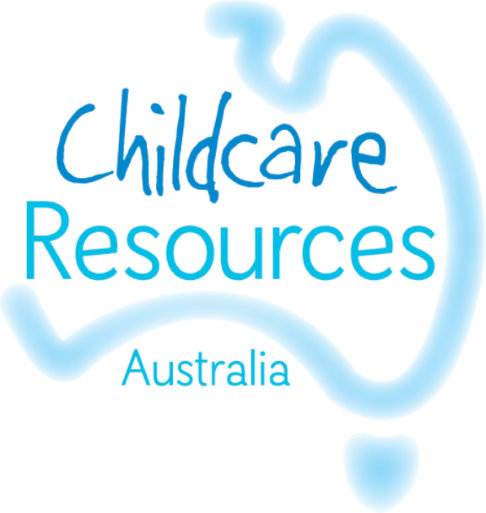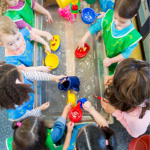We had a lovely downpour of rain in Brisbane on a warm spring morning. I was out visiting a city childcare service and noticed staff saying “come away from the puddles, stop splashing”.
Are the children going to get…Wet? Cold? Dirty?
When children are engaged in water play, they generally do not worry about getting wet, cold or dirty.
So why are we worrying about it? Why are we stopping children from playing in the puddles?
Is it dangerous?
Is the area around the water slippery?
Is there a risk of drowning?
Is there bacteria in the water?
Yes, there may be BUT you can do a risk assessment, control the hazard and supervise children wanting to play in the puddles and once you have done that, why don’t you join them?
Puddles and water play are fundamental for development in the early years. Taking risks helps children understand and build their skills and capacity to stay safe. If children are not allowed elements of risk, they will not learn to be careful.
Karen Atkinson writes (Childcare Resources Australia CHCECE036 Provide Experiences to Support Children’s Play and Learning)
Risk Assessment of play experiences and excursions
Some play experiences can be planned for children and safety must be carefully considered. Risk Assessments are conducted by educators when they wish to design and implement an experience that can have additional safety concerns or risks. These may include:
- Cooking;
- Fire pits at the centre;
- Using real tools;
- Water play; and
- Excursions (roads, transport, water, strangers).
These risk assessments help educators see the interrelationship between play and safety and help them to determine whether the learning benefits of this experience outweigh the safety concerns.
Risk assessments also assist educators identify and implement additional safety measures to ensure the safety of each child.
(Childcare Resources Australia CHCECE036 Provide Experiences to Support Children’s Play and Learning)

